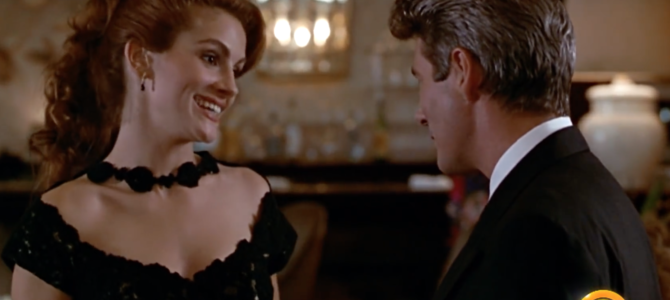“It’s all about money,” goes the opening line to one of the most iconic films in modern American cinema. “Pretty Woman” is celebrating its 30th anniversary this week, but there’s even more reason to watch the classic film again (and again) during self-isolation. It’s the ultimate capitalist rom-com.
Big diamonds, polo matches, fancy sports cars, and lavish hotels, “Pretty Woman” is an ode to all the trappings of wealth liberals enjoy but publicly condemn. Edward Lewis, played by Richard Gere, is a businessman who isn’t concerned about income inequality in pre-woke California. He’s kind of a Randian hero for the ’90s with double-breasted Armani suits and a ridiculously large cell phone.
“We’re going to spend an obscene amount of money in here,” he tells a shop manager on Rodeo Drive.
“Exactly how much are we talking about? Profane or really offensive?” the manager asks.
“Really offensive,” Edward replies.
On the outs with his “ex-wife, ex-girlfriend, and ex-dog,” he needs a date, long before the easy era of Tinder. Julia Roberts is a prostitute named Vivian who struts down Hollywood Boulevard in a mini-skirt and thigh-high boots. (Today she’d be condemned as anti-feminist and a contributor to human trafficking.) Edward asks her for directions while she’s cruising for business. Like a true capitalist, Vivian offers them for a fee.
“You can’t charge me for directions, “ Edward balks.
“I can do anything I want to, baby. I ain’t lost,” she shoots back.
The two fall in love, despite their vast differences and backgrounds, amid the milieu of the one percenters. At a champagne affair, an elegantly attired Roberts tells inquisitive guests that she is not trying to “land” the multi-millionaire, she’s just “using him for sex.” When another guest asks where Edward found his date, he jokingly responds “976-BABE.”
The humor we can find in this film today is charmingly free of PC madness. The reason this comedy works, while today’s comedies often don’t, is precisely because it makes fun of social problems instead of preaching about them. Remember when John Legend tried to make “Baby, It’s Cold Outside” palatable to social justice warriors? Can you imagine if they got their hands on a “Pretty Woman” reboot?
Today, Julia Roberts would play a unionized “sex worker” who had a contractual agreement with Edward. They wouldn’t be at the Regent Beverly Wilshire. (That’s for the Republican elite.) They wouldn’t dine on escargot, but a plant-based restaurant, and they wouldn’t go to San Francisco in a private plane. Poor Greta Thunberg would need smelling salts. Heck, both the title and the soulful Roy Orbison song from which it was derived would be lambasted for sexism.
It’s not impossible to think a reboot could happen. “Pretty Woman” was produced by an imprint of Disney, the experts on cultural revisions. Fortunately, however, the 1990 version isn’t going anywhere. At least for now.
“You and I are both similar creatures, “ Edward tells his lover, summing up their characters. “We both screw people for money.” Money, of course, can’t buy love, but it can buy one timelessly good comedy.









